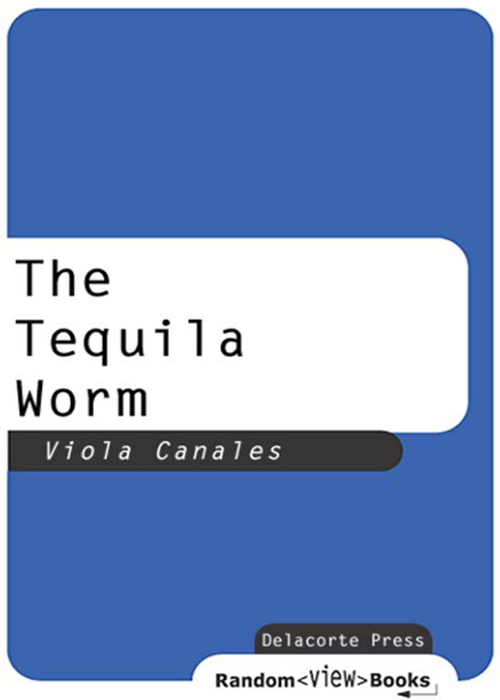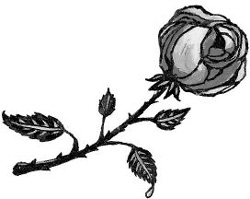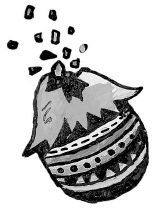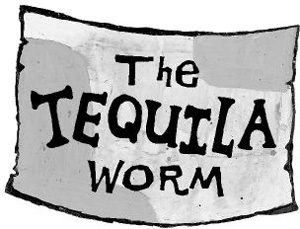The Tequila Worm



Table of Contents

To Antonio Canales, my late father,
for teaching me to follow my dreams.
To Dora Casas Canales, my mother,
for teaching me to love.
To Pamela Karlan, my best friend,
for being Pam.
To Wendy Lamb, my editor,
for making this book possible.
And to all comadres and compadres . . .
Acknowledgments
I thank my lovely agent, Andrea Brown.
I also thank the wonderful teachers, staff, and students of Saint Stephen’s Episcopal School, and most of all Dr. Flory, who made it possible for me to attend this terrific, caring school.
Last, I thank all my family and friends, especially those who helped inspire this story: Veronica Canales, Antonio Canales Jr., Gustavo Canales, Gloria Tijerina, Sandra Canales, Minta Rivas, Consuelo Canales, Hilda Canales, Cecilia Canales, Gonzaga Vela, Lile Casas, Miguel Casas, Lucy Casas, Sara Bowser, Dinah Acord, and Irma Muñoz.


The STORY TeLLeR’s BAG

In the evenings when the cool breeze began to blow, all the families came out to their porches to sit and talk, to laugh and gossip. And that is where and how our barrio became one family.
Doña Clara visited every summer and
no one
missed
her
stories, for she came carrying a bag filled with secret things that conjured up the most amazing tales.
Clara had a square face on top of a big round body, and the biggest eyes and the widest mouth: she was especially proud of her catfish mouth, which she painted scarlet. She wore a big black onyx tongue around her neck. “This,” she said, “is the symbol of a storyteller. It has been handed down from generation to generation, for hundreds of years.”
When asked where she’d come from, she’d roll her eyes, pitch her arms up to the night sky, and point to the stars with her long scarlet fingernails. So the other kids and I believed she’d just flown down from a star.
Then she’d shake her many wooden bracelets and thrust her hand into her mysterious bag. She rattled her things around as we stared, bug-eyed.
Clara sucked her front teeth, batted her eyes, and then slowly started lifting something out of her bag. You could hear your blood go
thump! thump! thump!
Once, she pulled out a three-inch lock of hair. “This belonged to Mama Maria, your great-great-grandmother.”
As the lock of dark hair made its way from hand to hand, person to person, Clara said, “Your Mama Maria was a mule. Always kicking her way through things. A force to behold! But beautiful, with the darkest eyes and long, wild Apache hair.
This hair
.
“And you, Sofia”—Clara pointed at me—“not only look like her, but have inherited her gift for mule-kicking.” I gasped. My cousin Berta laughed.
Papa was sitting beside me on top of an upside-down pail. “Mi’ja, don’t look so worried. This is a good thing— for things to kick will come your way in many shapes and sizes. You’ll see.”
Next Clara pulled out a jar full of big mule teeth with a piece of a blue balloon inside. “I always show the hair and teeth and blue balloon together,” she said, “for the teeth belonged to Papa Carlos, your great-great-grandfather, Mama Maria’s husband, and he gave this blue balloon to her when they met and fell in love in a little Mexican plaza far away. The town plaza, in those days, was where people gathered to tell their tales.”
Oh no!
I thought.
Please don’t say I inherited those
teeth, too!
But Clara pointed at Berta, who bit her lip and covered her big mouth with her hand. Now
I
laughed.
“Hija, the big teeth are a good gift too,” said Berta’s mother, Tía Belia, “if you learn to use them right.”
And as the jar of teeth made its way around, Clara told us, “Look closely at them, for they once bit a rattlesnake in half, chewed a mountain of tobacco, and helped yell out the longest string of insults imaginable.
“Yes, kicking and biting like mules runs deep in our blood. Never forget that, for it might come in handy someday.”
The things Clara pulled out of her bag included chipped saints, wacky handmade dolls, arrowheads, recipes, cracked old photos of stiff people, and pictures of dead children, who looked beautiful and peacefully asleep.
Clara always stayed a couple of days and then disappeared. “I have to go visit other families, other barrios, for it’s important that they also hear these stories.”
But before leaving she’d reach into her bag one last time to pull out a tiny bottle of mescal. She’d take a hairpin and fish out the tequila worm swimming inside. “This will cure my homesickness as I travel to my next family,” Clara would say, popping the tequila worm into her mouth and chewing. She swallowed loudly as we stared. I was amazed. Sick, too. “Now, is there some story you want me to tell as I continue on my journey?”
I’d shake my head. There was nothing I’d want her to tell, at least nothing that could possibly compare with the stories that went with the big teeth, the lock of hair, and especially the tequila worm.
When I was about six, Clara came to visit as usual, but this time she was in a wheelchair. And when we gathered around her on the porch, we saw that her big mouth had collapsed into a thin line and her popping eyes gazed out at nothing.
Mama kissed Clara’s trembling white hair and placed her story bag at the center of the porch. She reached inside and slowly pulled out her cupped hand. There was nothing in it. But Mama handed the invisible thing to me and said, “Here is the ceramic baby Jesus for the manger of the Christmas
nacimiento
your
abuelita
builds each year. It represents the vivid image Clara gave me of my great-grandmother Maria, who I never met, but who I feel close to through her story: about how she worked for weeks, making tamales and then going door to door selling them so she could buy a brand-new baby Jesus for her daughter, my mother, who was appointed the Christmas
madrina,
the godmother for baby Jesus that year
.
” This image was passed around from hand to hand, person to person.
“Sofia, you’re next!” Mama said. “Reach into the bag and see what secret is inside for you.” I put my hand in and felt all around.
Empty
. I pulled out my cupped hand and showed everyone. I hesitated, then turned to look at Clara. “This is the black onyx tongue that Clara still wears around her neck. I look at it and remember all the stories Clara has told us. Our stories.”
“Yes,” said Mama. “Clara is a perfect example of a good
comadre
.”
“A good
comadre
?” I said.
“Someone who makes people into a family. And it’s what I want you and your little sister, Lucy, to grow up to be.”
“But, mi’ja, don’t worry about this now,” Papa said, smiling and tapping out a waltz on the cement floor with his brand-new brown and white cowboy boots. “It’s something you’ll gradually pick up along the way.”
Mama handed Clara’s bag to my cousin Berta. “It’s your turn.”
That night, as I lay awake, I thought about Clara and what Mama had said about becoming a good
comadre
. All I could figure out was that telling stories was a big part of the secret to becoming one. That, and being brave enough to eat a whole tequila worm.